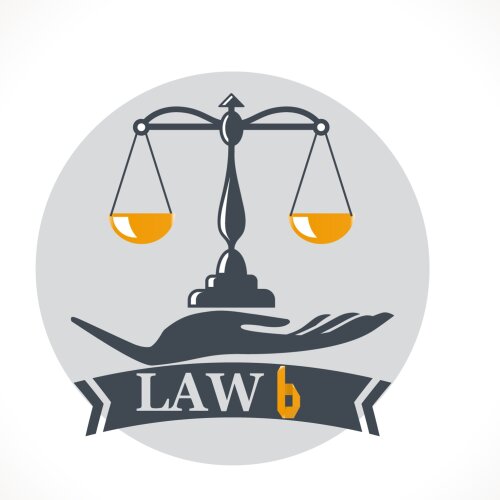Best Civil Litigation Lawyers in Islamabad
Share your needs with us, get contacted by law firms.
Free. Takes 2 min.
List of the best lawyers in Islamabad, Pakistan
About Civil Litigation Law in Islamabad, Pakistan
Civil litigation in Islamabad, Pakistan, involves the resolution of disputes between individuals, organizations, or between individuals and organizations. These disputes may relate to contractual agreements, property, torts, family law, and a range of other private matters. The process is governed by various laws including the Code of Civil Procedure, 1908, as well as specific laws relevant to the dispute. Proceedings are conducted in Civil Courts, with the District Courts often serving as the initial point of litigation.
Why You May Need a Lawyer
Individuals may require legal help in civil litigation for various reasons. Common situations include contractual disputes, such as those arising from business transactions or employment; property disputes involving land or real estate; family matters such as divorce or inheritance issues; and tort claims resulting from personal injury or negligence. A lawyer can navigate the complex legal procedures, file the necessary documents, and provide representation in court to either pursue a claim or defend against one.
Local Laws Overview
The local laws of Islamabad involve a mixture of statutory law and principles of common law. Key aspects that are particularly relevant to civil litigation include the following:
- The Code of Civil Procedure, 1908 - which outlines the procedures to be followed in civil courts.
- The Contract Act, 1872 - which governs contractual relationships and obligations.
- The Transfer of Property Act, 1882 - which deals with the transfer of property in Pakistan.
- The Specific Relief Act, 1877 - which outlines remedies available in civil court such as injunctions and specific performance.
- Family laws, which vary depending on the individual’s religion and can include Muslim Family Laws and the Family Courts Act, 1964.
Frequently Asked Questions
What is the statute of limitations for civil cases in Islamabad?
The statute of limitations varies depending on the type of case. It is important to consult a lawyer to determine the specific limitation period for your case.
Can a foreign judgment be enforced in Islamabad?
Yes, foreign judgments can sometimes be enforced in Islamabad, provided they meet certain criteria as per the law.
Is mediation mandatory in civil cases in Islamabad?
While mediation is not mandatory in all cases, there are circumstances where the court may refer parties to mediation to settle disputes out of court.
What fees are involved in civil litigation?
Fees in civil litigation can include court fees, lawyer's fees, and miscellaneous expenses related to the proceedings. Fees will vary based on the complexity of the case.
How long does civil litigation usually take in Islamabad?
The duration of civil litigation in Islamabad can range from several months to years, depending on the complexity of the case.
Can one represent oneself in civil court in Islamabad?
Yes, individuals can represent themselves, although legal representation is strongly recommended due to the complexities involved.
What is a decree and how is it enforced?
A decree is a formal order issued by a court. Once issued, a decree can be enforced through the court with processes like attachment and auction of property, or through other enforcement orders.
Can a civil litigation case be appealed?
Yes, decisions in civil cases can be appealed to higher courts, subject to certain conditions and limitation periods.
What are some alternatives to litigation?
Alternatives include arbitration, mediation, and negotiation. These alternatives are often faster and less costly than formal litigation.
Are there any court exemptions available?
Exemptions, such as fee waivers, are available under certain conditions for individuals unable to afford court costs.
Additional Resources
For additional help, individuals can contact the Islamabad Bar Association, which provides services for the public and lawyers, or the Federal Ministry of Law and Justice for information on legal aid services. The Federal Ombudsman and the Law and Justice Commission of Pakistan can also offer guidance and support.
Next Steps
If you need legal assistance in civil litigation, the next steps are to gather all relevant documentation related to your case, seek an initial consultation with a lawyer who specializes in civil litigation, and consider potential alternatives to court proceedings. Remember to act quickly to comply with legal time frames and improve your chances of a favorable outcome.
Lawzana helps you find the best lawyers and law firms in Islamabad through a curated and pre-screened list of qualified legal professionals. Our platform offers rankings and detailed profiles of attorneys and law firms, allowing you to compare based on practice areas, including Civil Litigation, experience, and client feedback.
Each profile includes a description of the firm's areas of practice, client reviews, team members and partners, year of establishment, spoken languages, office locations, contact information, social media presence, and any published articles or resources. Most firms on our platform speak English and are experienced in both local and international legal matters.
Get a quote from top-rated law firms in Islamabad, Pakistan — quickly, securely, and without unnecessary hassle.
Disclaimer:
The information provided on this page is for general informational purposes only and does not constitute legal advice. While we strive to ensure the accuracy and relevance of the content, legal information may change over time, and interpretations of the law can vary. You should always consult with a qualified legal professional for advice specific to your situation.
We disclaim all liability for actions taken or not taken based on the content of this page. If you believe any information is incorrect or outdated, please contact us, and we will review and update it where appropriate.














